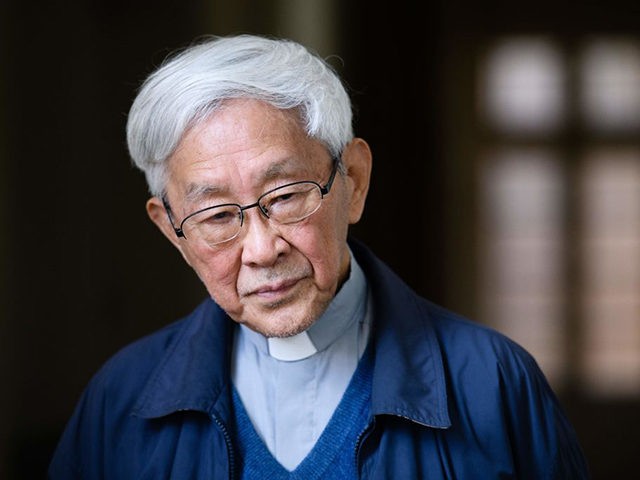ROME — The formidable Cardinal Joseph Zen asks in a recent letter to his brother bishops why the Catholic Church would embark on a path of “synodality” when it has delivered such terrible results in Germany.
“I address this letter to you, members of the Synod on Synodality, supposing that you are as worried as I am about the outcome of this Synod,” the former bishop of Hong Kong stated in his September 21 letter, which has just been rendered public.
It is worrisome that while the Vatican Synod was being convoked, “there was already under way in Germany the so-called ‘synodal path,’” the cardinal declared, which proposes “a revolutionary change in the constitution of the Church and in the moral teaching about sexuality.”
“An alarming symptom is the ongoing numerical decrease of Catholic faithful in Germany,” Zen wrote. “According to official data, the decrease has been of more than half a million in 2022. The Church in Germany is dying.”
The cardinal also notes that in Germany, the bulk of the central committee of the synodal path is not necessarily representative of German Catholics since “most of the group are Church employees,” and this phenomenon could just as easily repeat itself in the Vatican synod.
You should “face your Synod work with deep worry,” Zen stated, adding that the Synod Secretariat “is very efficient at the art of manipulation.”
“Often they claim not to have any agenda. This is truly an offense to our intelligence,” the cardinal writes. “Anybody can see which conclusions they are aiming at.”
The synod secretariat insists that those who have felt “excluded” — meaning “people who opt for a sexual morality different from that of Catholic tradition” — deserve particular attention and should be listened to.
“The Synod must conclude with a universal inclusion, must enlarge the tent, all welcome, without judging them, without inviting them to conversion,” they say.

A cross stands in front of Christ’s Resurrection Church during an open-air blessing service for lovers. A rainbow flag can be seen in the background (Henning Kaiser/picture alliance via Getty Images).
“They speak of ‘conversation in the Spirit’ as if it were a magical formula,” Zen observed. “And they invite all to expect ‘surprises’ from the Spirit (evidently they are already informed which surprises to expect).”
The synod organizers have also tried to eliminate debate and discussion, to be replaced by mere “conversation,” the cardinal observed, but “to avoid discussions is to avoid the truth.”
Moreover, he stated, “To accept an unreasonable procedure is to condemn the Synod to failure.”
In his critique of the synod and its process, Cardinal Zen joins a number of his fellow prelates who have also expressed their misgivings about the event.
Cardinal Raymond Burke, for instance, the former head of the Vatican’s highest court, has warned that a move toward “synodality” is causing “evident and grave harm” to the Church.
“Synodality and its adjective, synodal, have become slogans behind which a revolution is at work to change radically the Church’s self-understanding, in accord with a contemporary ideology which denies much of what the Church has always taught and practiced,” Burke has written.
The late Cardinal George Pell, also voiced his doubts, calling the upcoming synod on synodality a “toxic nightmare” and insisting that it is “hostile” to the Church’s apostolic tradition.
The Catholic Synod of Bishops has produced “one of the most incoherent documents ever sent out from Rome,” Pell wrote in reference to the synod’s working document, and what was intended to express “God’s dream” of synodality “has developed into a toxic nightmare.”
The synodal document focuses primarily on radical inclusion, listening, participation, and co-responsibility with believers and nonbelievers while ignoring central themes of Christian teaching and practice, Pell wrote.
For his part, Cardinal Gerhard Müller, the former prefect of the Vatican’s doctrinal office, has called the synodal path a “hostile takeover of the Church of Jesus Christ.”
“If they succeed, it will be the end of the Catholic Church,” he said of those promoting the synodal process. “And we must resist it like the old heretics of the Arianism.”

COMMENTS
Please let us know if you're having issues with commenting.